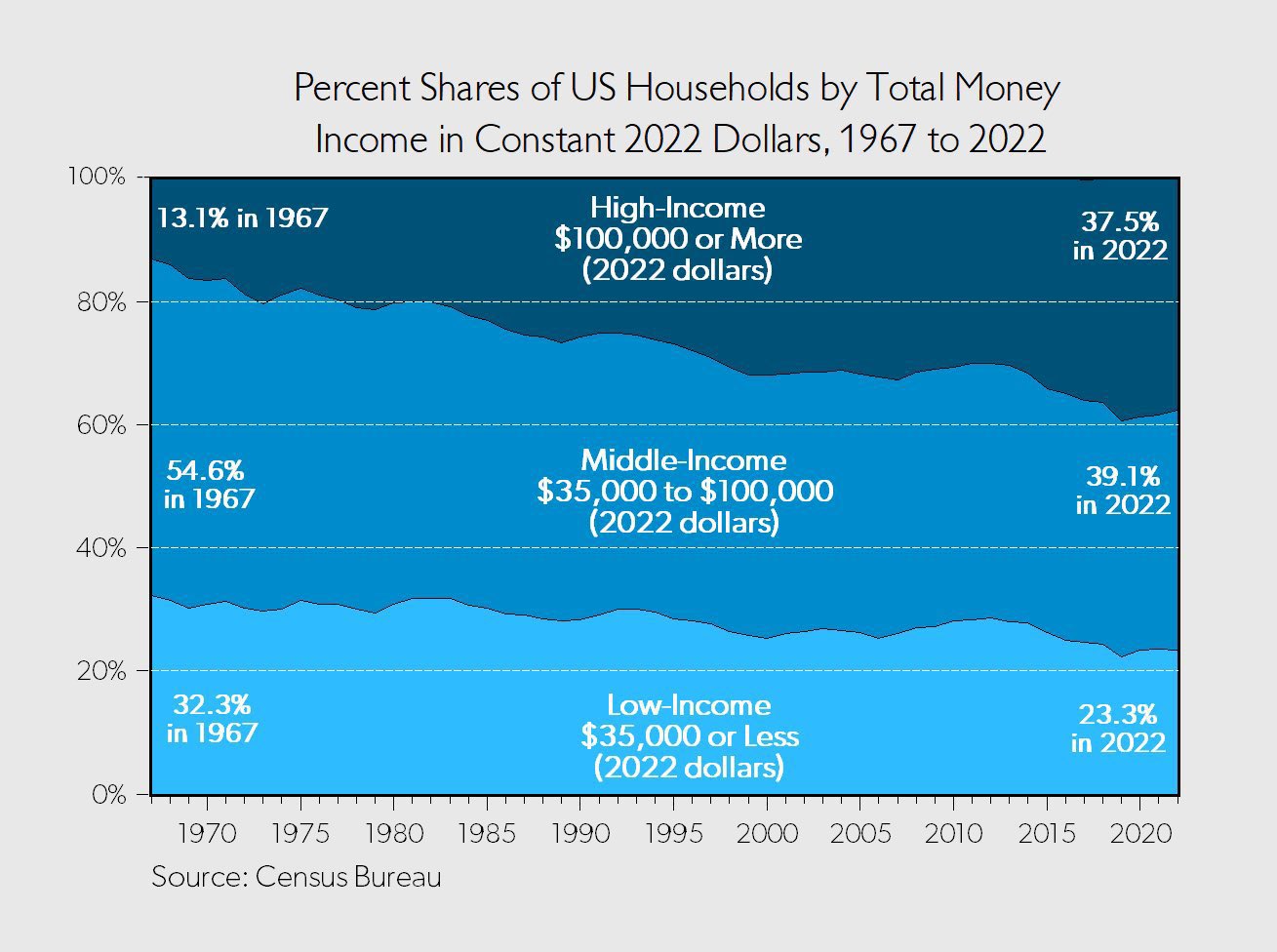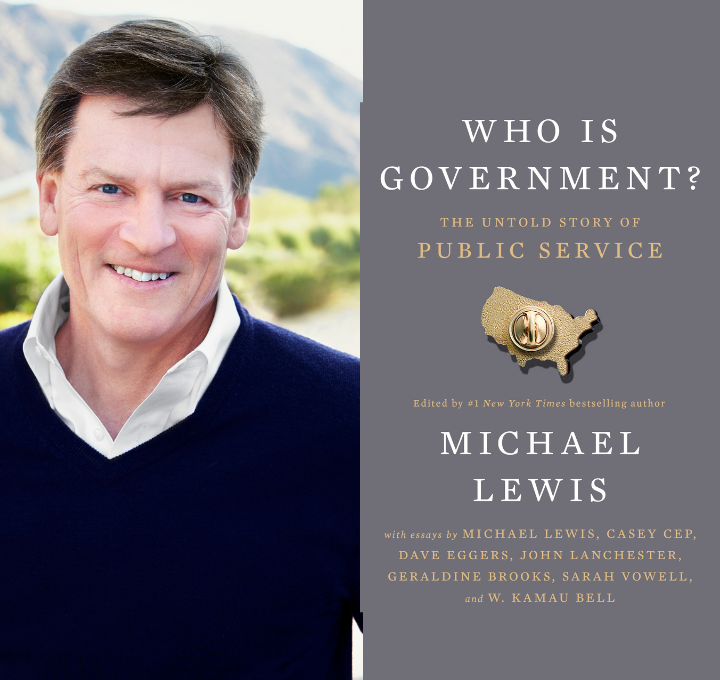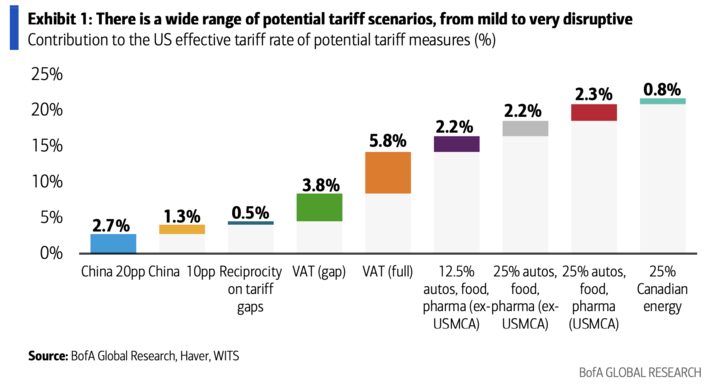Is It Possible to Retire By 50 If You’ve Banked $2 Million?
When you have $2 million saved, you are in an enviable position given that the average 50-year-old has a $592,285 401(k) balance while the median 401(k) balance for 50-year-olds is $252,850, according to Empower. However, while it is clear that $2 million is a lot of money, it is not necessarily enough to retire at […] The post Is It Possible to Retire By 50 If You’ve Banked $2 Million? appeared first on 24/7 Wall St..

Key Points
-
A nest egg of $2 million may be enough to retire at 50, but that’s not guaranteed.
-
You need to make sure you can live off the income the investment produces without withdrawing too much money each year.
-
You’ll also have to ensure you can afford to pay for health insurance from your $2 million nest egg.
-
Are you ahead, or behind on retirement? SmartAsset’s free tool can match you with a financial advisor in minutes to help you answer that today. Each advisor has been carefully vetted, and must act in your best interests. Don’t waste another minute; get started by clicking here here.(Sponsor)
When you have $2 million saved, you are in an enviable position given that the average 50-year-old has a $592,285 401(k) balance while the median 401(k) balance for 50-year-olds is $252,850, according to Empower.
However, while it is clear that $2 million is a lot of money, it is not necessarily enough to retire at such a young age. Before you quit work at 50 because your nest-egg has hit the $2 million mark, there are a few key things that you need to think about first.
What are your spending needs, and can you meet them at a safe withdrawal amount?
The first big factor that is going to determine if you can retire at 50 with $2 million is how much you need to spend.
You can’t just take an unlimited amount out of your $2 million investment account balance whenever you want, or your money will run dry. Instead, you need to pace your withdrawals. Morningstar experts now recommend a 3.7% withdrawal rate, which would mean that $2.7 million would produce around $74,000. The calculator below shows what that would look like, including how long your money would last.
Now, while you might be able to withdraw more, being conservative about taking money out is smart — especially if you are retiring young. So, the question becomes, can you live comfortably on the $74,000 that your nest egg would produce?
If you don’t spend much, live in a low-cost-of-living area, or plan to move to one, you may feel pretty comfortable that you can make life work on this income — in which case, you may very well be ready to retire.
Of course, there are just a couple of other things to consider first.
What will you do about medical insurance?
The next big thing to think about is how you are going to handle medical insurance if you retire at 50. You need insurance because otherwise even a single relatively minor illness could be a huge disaster.
You aren’t going to qualify for Medicare until you are 65, so you’ll have to get coverage for a long time. While COBRA allows you to stay on your employer’s plan for 18 months in most cases, the premiums can become very expensive once subsidies from your company disappear. You’ll also need coverage when COBRA runs out.
You can expect to spend a hefty sum to get covered with an individual plan, and many plans you can buy yourself are not nearly as comprehensive as those that you could get through an employer. So, research your options carefully, figure out what plans cost in your area and what the deductible and maximum out-of-pocket is, and make sure you can afford the costs.
If possible, it’s ideal to save money for medical care expenses in a health savings account (HSA). You can contribute with pre-tax money, and HSAs aren’t use-it-or-lose-it. This means you can invest the money in your account and allow it to grow over time. When you make withdrawals for qualifying medical expenses, that money can also be withdrawn tax-free.
You need a qualifying high-deductible health plan to invest in an HSA, though, so that won’t be an option for everyone. Even if you don’t have access to an HSA, you do still need to ensure you can cover your insurance and care costs throughout your retirement — which means this would have to be paid for with the income your $2 million generates.
How will your Social Security benefits be affected?

Finally, consider how your Social Security benefits will be affected as a result of retiring at 50, as this will also impact the money available to you.
Unfortunately, Social Security benefits are always based on average earnings during the 35 years your inflation-adjusted income was at its highest. By retiring at 50, you’ll likely have very few years of high earnings included in your average. As a result, your benefit will be much lower. This will mean you need to rely more on your $2 million to support you.
You’ll also need to decide if you want to wait until 70 to claim Social Security, which would max out your monthly payment but leave you without Social Security checks for 20 years, or if you want to claim earlier but shrink your benefits compared to the maximum amount you could qualify for.
A financial advisor can help you to address all of these issues and to determine if retiring at 50 with $2 million is doable. Your advisor can help you identify your spending needs, decide on a withdrawal rate that makes sense, and review the full state of your finances to help you see if you can leave work without regrets or must stay on the job a little longer to achieve the financial security you deserve.
The post Is It Possible to Retire By 50 If You’ve Banked $2 Million? appeared first on 24/7 Wall St..









































































































































































